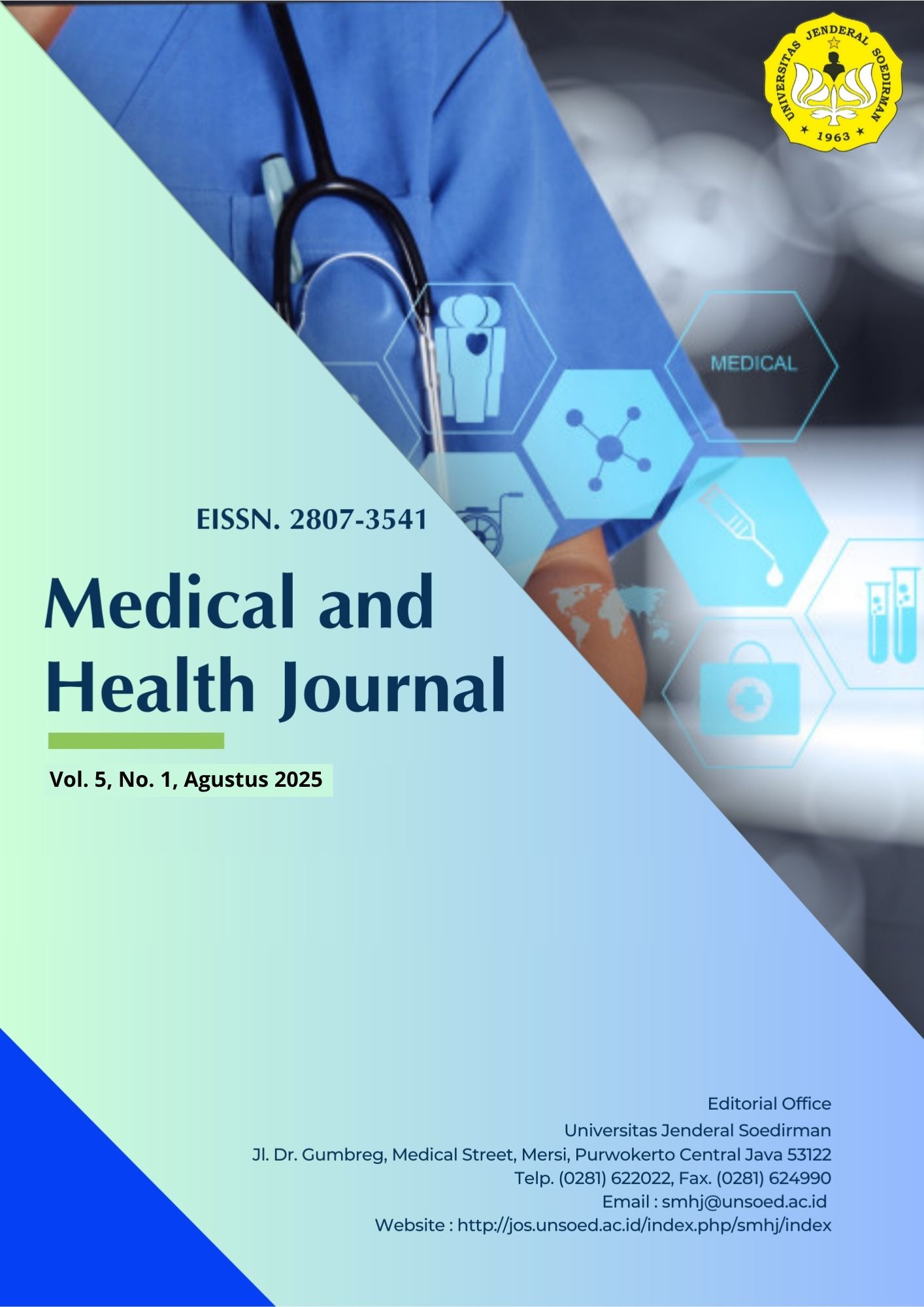Mortality Analysis in Neonates with Gastroschisis: A Retrospective Study at Dr. Sardjito General Hospital, Yogyakarta (2007–2012)
Abstract
Background: Gastroschisis is a congenital abdominal wall defect that poses a significant risk of morbidity and mortality in neonates, particularly in low- and middle-income settings. Despite advances in neonatal care and surgical techniques, survival outcomes remain variable and influenced by multiple clinical factors. Objective: To analyze the clinical and laboratory factors associated with mortality among neonates with gastroschisis treated at Dr. Sardjito General Hospital, Yogyakarta, Indonesia, between 2007 and 2012. Methods: This was a retrospective observational study involving 35 neonates diagnosed with gastroschisis. Data were collected from medical records, including birth weight, gestational age, timing of surgery, hemoglobin and platelet levels, albumin status, bowel necrosis, sepsis status, and anatomical characteristics of the abdominal wall defect. Univariate and multivariate logistic regression analyses were performed to identify significant predictors of mortality. Results: The overall mortality rate was high. Sepsis was found to be the only independent predictor of mortality (p = 0.037; OR 14.29; 95% CI: 1.179–173.261). Other factors significantly associated with mortality in univariate analysis included low birth weight (p = 0.043), small defect-to-bowel disproportion (p = 0.020), and postoperative hemoglobin <13 g/dL (p = 0.019). Postoperative thrombocytopenia and bowel necrosis showed a strong trend toward higher mortality but did not reach statistical significance. Gestational age, albumin levels, and timing of surgery were not significantly associated with mortality. Conclusion: Sepsis remains the most critical factor associated with mortality in neonates with gastroschisis. Early infection control, optimal perioperative hematologic management, and timely surgical intervention are essential to improve survival outcomes. These findings highlight the need for standardized protocols and further prospective studies to reduce mortality in this vulnerable population.






